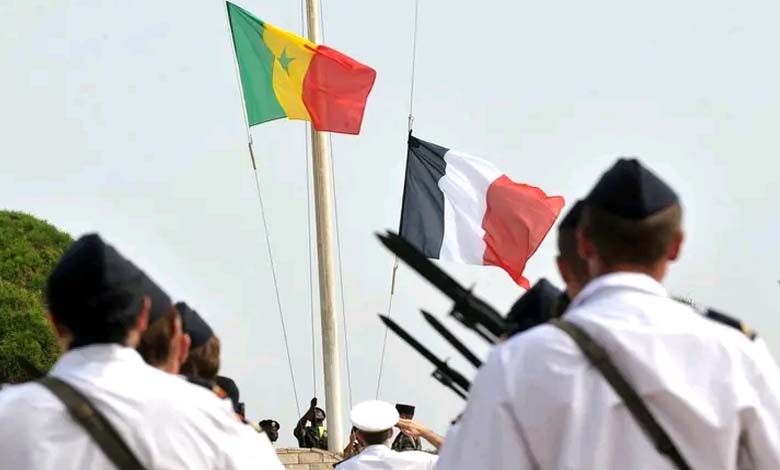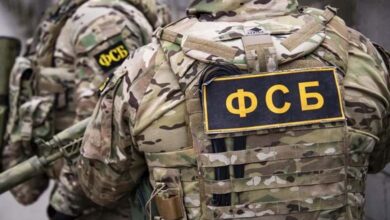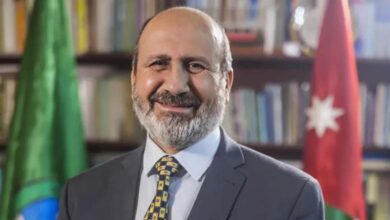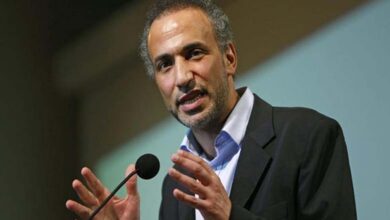France ends its chapter in Senegal… Dakar faces the challenges of sovereignty and security gaps

A historic moment unfolded as French troops withdrew from their bases in Senegal. But what lies ahead?
-
Togo and Terrorism: From Transit Zone to Operational Base?
-
Jama’at Nasr al-Islam wal Muslimin Attempts to Infiltrate Mauritania and Senegal: What Is It Planning?
Political experts and scholars specializing in African affairs see France’s military withdrawal from Senegalese bases as a historic shift that redraws the boundaries of national sovereignty in Dakar. At the same time, it raises pressing questions about the future of security in West Africa amid the growing presence of terrorist groups advancing from the Sahel region toward coastal countries.
While the Senegalese government views this move as a long-awaited sovereign achievement, analysts warn of possible consequences, particularly the security vacuum that armed groups could exploit in an already fragile region.
-
The Last Base Extinguished… Côte d’Ivoire Deepens France’s Losses in Africa
-
French Presence in Africa Shrinks as Senegal and Chad End Defense Cooperation
The end of two centuries of French military presence
On July 17, 2025, the Guéyile camp in Ouakam, in the capital Dakar, witnessed a moment described as historic, as the Senegalese flag was hoisted there for the first time in nearly two centuries, replacing that of the French army.
With this symbolic act, more than 200 years of permanent French military presence in Senegal came to an end.
The French newspaper Le Courrier International noted that the handover of six military bases to the Senegalese Armed Forces represents a further step toward the sovereignty demanded by Dakar. However, unlike in Sahel countries, cooperation has not been completely severed.
-
Terrorism and Gold… Burkina Faso Traces Its Troubles Back to French Legacy
-
Senegal on the Path of Its Neighbors… “Red Card” Expected for France
Quoting Senegalese and African media, the paper wrote: “Senegal recovers its military camps”, echoing headlines from the state-run daily Le Soleil, which confirmed that six French bases are now fully under Senegalese control—something the government described as “a decisive step toward real independence.”
Le Quotidien headlined the event as: “The French army lowers its flag… Senegal asserts its sovereignty,” underlining the symbolic and calm nature of the handover, yet acknowledging its deep political significance.
-
Muslim Brotherhood in Senegal: What Do We Know About the Jamaat Ibad Rahman Group?
-
Escalating Tensions: Is france preparing for military intervention in Niger?
Between sovereignty and security risk
General Mbaye Cissé, Chief of Staff of the Senegalese Armed Forces, described the moment as “a strategic turning point,” praising the previous military cooperation with France, which focused primarily on training and preparedness.
He affirmed that Senegal is now better prepared than ever to secure its territory independently, without relying on foreign military umbrellas.
Still, the shift is not without complications. French Sahel expert Jean-Luc Desmaïs of the Paris Center for Geopolitical Studies said that “France’s withdrawal does not mean a total break with Senegal, but rather a restructuring of the bilateral relationship.”
-
“ECOWAS” and Niger… All options are open and force is ready
-
Anticipation and Imminent Military Action… Niger Coup Faces Popular Rejection and Regional Outrage
He added, “The real challenge lies in replacing French intelligence and logistical support to counter terrorist threats advancing from the Sahel.”
Security reports indicate that extremist groups active in Mali, Burkina Faso, and Niger are now expanding into coastal nations such as Senegal, Côte d’Ivoire, and Togo, taking advantage of foreign troop withdrawals and the erosion of regional coordination.
Senegalese security researcher Mamadou Niang, of the Center for Political Research in Dakar, stated that “this is not just a military departure—it’s a redefinition of the very concept of sovereignty. Yes, Dakar has reclaimed the land, but is it truly ready to secure it?”
-
The Rafale deal culminates in a growing military cooperation between UAE and France
-
Senegal and the Threat of Terrorism
He added that “cooperation with France must shift from dependency to smart partnership, particularly in the areas of intelligence and counterterrorism.”
The future of Dakar–Paris relations
Despite the French withdrawal, ties between Paris and Dakar have not been entirely severed. Unlike what occurred in Sahel countries, relations have not been completely cut.
Diplomatic sources predict that training programs and intelligence sharing will continue, within a framework that respects Senegalese sovereignty.
-
Russia Activates “Soft Power” in Africa
-
Burkina Faso Strengthens Its Fight against Terrorism: New Brigades in “Vulnerable Areas”
In this regard, Desmaïs commented, “The French may have pulled out militarily, but they won’t easily withdraw politically or strategically from West Africa. Senegal will be a test case for the new model of Africa–France relations.”
He concluded that while France’s withdrawal from Senegal may seem like a pure sovereignty victory, it also brings serious challenges requiring national vigilance, robust security planning, and balanced partnerships.
“Senegal now stands at the threshold of a new chapter, where independence is written in the language of security and political maturity.”
-
With the “African Initiative,” Russia Strengthens Its Influence in Burkina Faso
-
Draft of New Gabon Constitution: Everything You Need to Know












